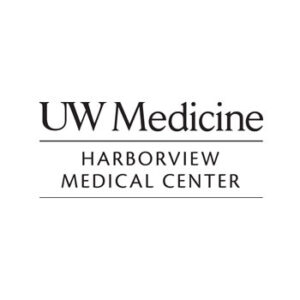Increasing Access to Wraparound Health Services and Evidence-Based Substance Use Treatment for Individuals with Stimulant Use Disorder at Hobson Clinic

Grantee: Harborview Medical Center:
Timeframe: July 2025 – June 2026 | Amount: $200,000
Stimulant use disorder, especially methamphetamine use, is a growing crisis in King County, causing severe illness and rising death rates, particularly among people experiencing homelessness. Despite the urgency, effective treatments like Contingency Management (CM) remain largely out of reach due to systemic barriers, lack of provider training, and fragmented services. Methamphetamine use is especially widespread among unhoused populations, where stigma and co-occurring health challenges make care even harder to access.
CM is the most evidence-based and cost-effective treatment for stimulant use, with strong evidence that it reduces use. However, existing programs are limited in both scale and reach. Many individuals prefer person-centered models that reward a range of positive behaviors, but these approaches are rare. Without greater investment in accessible, integrated, and culturally responsive treatment, including CM, wraparound care, and provider education, the stimulant crisis will continue to escalate and disproportionately harm marginalized communities.
This project will launch a one-stop hub for stimulant use disorder treatment at Hobson Clinic, prioritizing individuals experiencing homelessness. The clinic will integrate CM with primary care, cardiology, addiction medicine, and behavioral health services. It will provide coordinated and compassionate care for individuals seeking to quit, reduce, or more safely use methamphetamine. The program will center on a nonjudgmental, person-first approach that supports a range of recovery goals, from harm reduction to abstinence.
Hobson Clinic’s co-location with a 177-unit permanent supportive housing site offers a unique opportunity to serve this high-need population. The project will establish a community advisory board, hire peer support specialists and key staff, and create a CM protocol informed by participant feedback and established best practices. Clients will receive incentives for reaching individualized health goals, with safeguards in place to ensure ethical and equitable implementation.
Services will be tailored to individual needs, including abstinence-based or harm reduction support, psychiatric care, and a safe, welcoming space for those in stimulant-related crisis. The program expects to serve at least 100 clients annually, fostering progress through celebration, peer support, and strong clinical partnerships.
Led by experienced clinicians in collaboration with DESC and Harborview specialists, this initiative aims to improve access to care, reduce stigma, and strengthen outcomes for people with stimulant use disorder across King County.
ABOUT OUR GRANTEE
Harborview Medical Center
“Harborview Medical Center is a comprehensive healthcare facility dedicated to providing specialized care for a broad spectrum of patients from throughout the Pacific Northwest, including the most vulnerable residents of King County.
The UW Medicine physicians, staff and other healthcare professionals based at Harborview provide exemplary patient care in leading-edge centers of emphasis, including emergency medicine, trauma and burn care; neurosciences, ophthalmology, vascular surgery, HIV/AIDS and rehabilitation medicine.
Patients given priority for care include the non-English speaking poor; the uninsured or underinsured, victims of domestic violence or sexual assault; people incarcerated in King County’s jails; people with mental illness or substance abuse problems, particularly those treated involuntarily; people with sexually transmitted diseases; and those who require specialized emergency, trauma or burn care.
Harborview Medical Center is owned by King County, governed by a county-appointed board of trustees and managed under contract by the University of Washington. The medical center plans and coordinates with Public Health Seattle and King County, other County agencies, community providers, and area hospitals, to provide programs and services.”